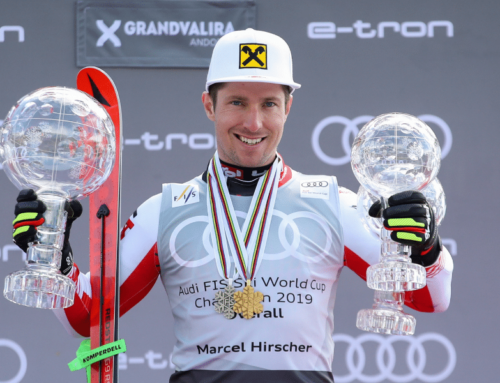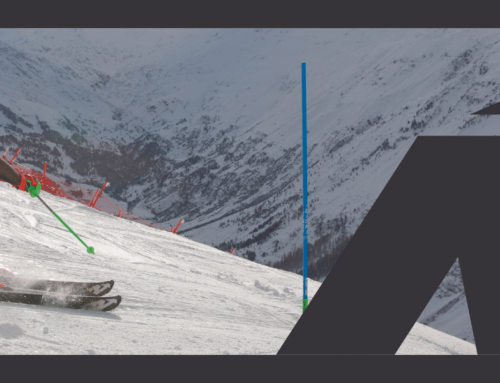My retirement story: It’s not always easy
Hanging up the race skis is an inevitable point in any skiing career; however, it is rarely highlighted just how difficult the retirement process can be for some athletes.
At first, retirement is a celebration of a great career. Yet after the celebrations have ended, and the rest of the sport has moved on, what lies ahead is a large transition period from participating in an elite sport — in some cases, to barely skiing at all. I have been going through this transition period for the past two seasons, and it took me at least a year to become comfortable with my new retired routine, and I am here to say that it’s OK if retirement is hard.
There are many different circumstances that lead to retirement including age, injury and free choice. In simpler terms, retiring can be a voluntary decision or an involuntary decision. For the instances that make retiring from skiing involuntarily, including injury and age, the transition process can take more of a toll on the athlete.

Like the majority of ski racers, I grew up skiing on the ski team at my home hill, then I moved up to FIS, and the rest is history. Every season my love and competitive instincts for the sport became stronger and stronger. I had big goals and ambitions that I took with me to NCAA Skiing. It was not until my very last race that I truly realized my career was over, not by choice, but because typically that’s what you do when you graduate from college, you retire from your sport, get your degree, and move on to the “real world.”
Following the decision to retire, it is important to keep in mind where life will take you next. Will you be living with friends, near family, in a new city? If you are graduating from college and retiring simultaneously, the next year of your life will potentially be drastically different than before. Entering the workforce is no easy feat and in order to make it through a transition like this, being surrounded by loved ones is a key component to consider.
I, however, did not take this into consideration when moving on in the next phase of my life. I moved back to the West Coast from Maine, to a city where I did not have family or friends on hand. With the determined instincts of my ski racing career still present, I was laser focused on my dream career in Hollywood, not my life outside of work, which I quickly discovered was a mistake.
Ending a career as an elite athlete can be akin to a loss of identity. It’s hard to imagine that after being surrounded by ski racing peers, coaches, teammates, and simply being on a mountain every day is immediately gone. I was someone who in the last few years of ski racing, thought only about ski racing. I had large goals I wanted to achieve in college, and I think it’s safe to say that I majored in Skiing. This intense ski racing mindset further made the transition to retirement more difficult. I often found myself thinking “how did I go from skiing all over the country to sitting at a desk 10-12hrs a day? If I’m not a ski racer anymore what am I?” These are thoughts that I wish I considered more carefully before I graduated and moved on from my school and skiing life.
Therefore, the way you cope can influence how this transition will go. If you are like me and didn’t think about retirement until you absolutely had to, (ie the last run of your collegiate career), then perhaps you will relate more to my experience and alter your post retirement plan in a way that will make your first season out of the gate more pleasant.

I believe a major factor that makes retirement especially difficult is that it can be an involuntary decision. Throughout my first year of retirement I missed ski racing every day. I missed my friends, I missed the competition, and I would have done anything to have one more season to give it my all on the race hill and punch one more slalom gate. Tears were shed on more than one occasion surrounding the topic because I knew there was no going back, at least at the same level of competition. Unfortunately, when we end our careers along with our education, there is often times not a feasible path forward within the sport, even if it feels like you have so much more to give. So after a few months of remorse, I knew that I needed to change my circumstances to feel more comfortable with my retired life.
So, I left my first job in what I thought was my dream career, moved closer to home with more friends and family, and embarked on a new career journey. Although, still craving more I knew I wanted to be connected to the ski racing community again.
Lucky for me I have been able to write for SkiRacing.com! As an aspiring Sports Journalist this opportunity ended up being a great asset to my life, and has helped me discover that I still really miss racing, but at least I am able to be part of the conversation of the sport. It has been especially nice to be in contact with many of the racers I still know on the circuit and beyond, for we all share the unique bond of ski racing. I encourage my peers who are retiring this year, have already retired, or are approaching retirement, to stay connected with each other as much as possible. It is hard to find people outside of the sport that understand the disappointment, triumphs, and loss that comes with any ski racing career. We can all lean on one another as we enter the new world of retirement as die hard ski racing fans.





















